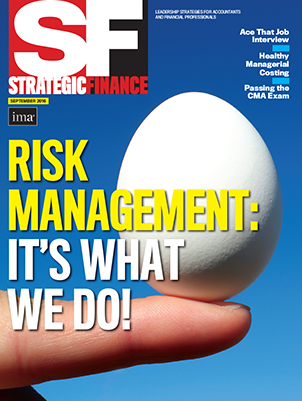The International Ethics Standards Board for Accountants (IESBA) has issued new ethics guidance for professional accountants worldwide regarding how and when to disclose actual or suspected illegal acts they encounter. The new standard, “Responding to Non-Compliance with Laws and Regulations,” or NOCLAR, is the result of six years of deliberation, including two exposure drafts and three global roundtable discussions.
The IESBA press release states that “the new standard provides a clear pathway for professional accountants to disclose potential non-compliance situations to appropriate public authorities in certain situations without being constrained by the ethical duty of confidentiality. It also places renewed emphasis on the role of senior-level accountants in business in promoting a culture of compliance with laws and regulations and prevention of non-compliance within their organizations.”
The global Code of Ethics for Professional Accountants published by the IESBA, which the new standard modifies, applies to both professional accountants in public practice and those in business. IESBA is an entity of the global association of professional accounting associations, the International Federation of Accountants® (IFAC®). Though IMA® (Institute of Management Accountants) is one of two U.S. organizations that are IFAC members, most member organizations primarily involve professional accountants in public practice. Thus it isn’t surprising that the largest portion of the IESBA code relates to auditors and other professional accountants in public practice but not to those employed in business or industry.
IMA members are required to comply with the ethical standards contained in the IMA Statement of Ethical Professional Practice as a condition of membership. When they renew their membership each year, members confirm that they have been in compliance with the standards. IFAC has judged the provisions of the IMA Statement to be substantially equivalent in all material respects to the provisions of the IESBA Code.
The basic objective of the new IESBA standard is to clarify the circumstances when professional accountants aren’t constrained by their ethical responsibility of confidentiality. The project was started to address situations where independent auditors were merely resigning from an engagement when law compliance situations arose rather than properly addressing the issues directly. The project scope was later expanded beyond auditors to include all professional accountants in public practice as well as those in business. The goal of the new standard for all professional accountants includes providing guidance on appropriate courses of action when considering actual or suspected NOCLAR.
The confidentiality standards for IMA members in the IMA Statement include the requirement to “keep information confidential except when disclosure is authorized or legally required.” Additionally, the IMA Statement requires members to “perform professional duties in accordance with relevant laws, regulations, and technical standards.” It also contains guidance for resolution of ethical issues and cautions members about external disclosures. The IMA Committee on Ethics has been following the progress of the IESBA project to assure IMA members that the IMA Statement continues to be clear, relevant, and up to date.
One of the more potentially far-reaching provisions of the new standard that applies to both auditors and accountants in business is that “in exceptional circumstances, [they] may immediately disclose the matter to an appropriate authority if imminent breach of a law or regulation…would cause substantial harm to stakeholders.” The standard provides criteria for considering such an important decision, but it neither mandates any particular action nor explains what constitutes “exceptional circumstances” or “substantial harm.” The document warns nonsenior-level professional accountants to exercise caution and to act in good faith.
The new IESBA standard contains two overarching objectives for senior-level professional accountants in business. First, they should help management (or those charged with governance) set the proper ethical tone at the top of the organization, and, second, they should work to establish appropriate policies and procedures to prevent NOCLAR from occurring. The new standard emphasizes the need to fulfill professional responsibilities in order to comply with applicable laws and regulations, including any requirement to report to an appropriate authority in order to help rectify, remediate, or mitigate consequences of a NOCLAR issue to reduce the risk of recurrence and to inform ownership or those charged with governance so they can take appropriate action.
For nonsenior-level professional accountants in business, the new standard states that identified or suspected NOCLAR should be escalated to an individual’s immediate superior or next level of authority. Professional accountants in business should utilize any established internal mechanisms for anonymous reporting. The IMA Statement includes similar provisions and additionally suggests consideration of consulting the individual’s own attorney to learn of any legal obligations, rights, and risks concerning the noncompliance issue.
The purpose of having a code of conduct is to motivate ethical behavior. The IMA Statement sets forth four overarching principles to express our values—honesty, fairness, objectivity, and responsibility—and it directs members to act in accordance with them.
IMA ETHICS HELPLINE
For clarification of how the IMA Statement of Ethical Professional Practice applies to your ethical dilemma, contact the IMA Ethics Helpline.
In the U.S. or Canada, dial (800) 245-1383. In other countries, dial the AT&T USA Direct Access Number from www.usa.att.com/traveler/index.jsp, then the above number.
The IMA Helpline is designed to provide clarification of provisions in the Statement of Ethical Professional Practice, which contains suggestions on how to resolve ethical conflicts. The helpline cannot be considered a hotline to report specific suspected ethical violations.

September 2016



